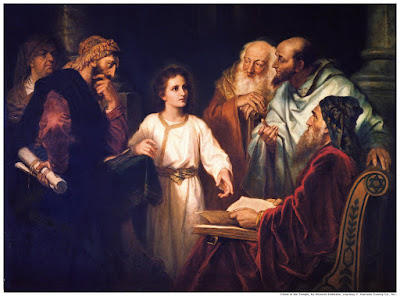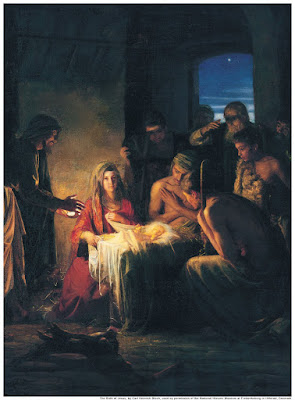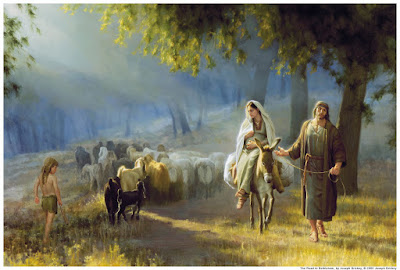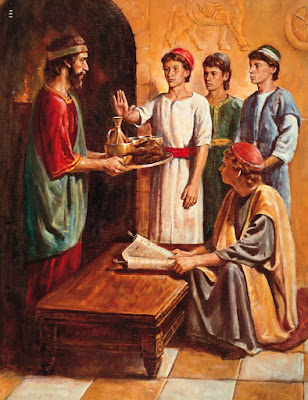

Luke 2:41-52; Joseph Smith Translation, Luke 2:46
After three days they found him in the temple, sitting in the midst of the doctors, and they were hearing him, and asking him questions. Joseph Smith Translation, Luke 2:46
When Jesus was 12 years old, He and His family traveled to Jerusalem for the Feast of the Passover. On the trip back to Nazareth, Joseph and Mary thought Jesus was among the group of family and friends they traveled with. But after a full day's journey, they realized Jesus was not with them. (See Luke 2:41-44.)
Joseph and Mary were worried and went back to Jerusalem to look for Jesus. For three days they searched for the young boy, finally finding Him in the temple, where He was teaching the wise men and answering their questions. (See Luke 2:45-46; Joseph Smith Translation, Luke 2:46.) "And all that heard him were astonished at his understanding and answers" (Luke 2:47).
Mary asked Jesus why He had done this, telling Him how she and Joseph had searched for Him, sorrowing. Jesus answered that He had been doing His Heavenly Father's work. Although Joseph and Mary knew that Jesus was to be the Savior, they did not understand His mission as well as He did. (See Luke 2:48-50.)
Jesus returned to Nazareth with Joseph and Mary and was an obedient son. As He grew older, He studied and learned; He was close to His Heavenly Father and well liked by other people. (See Luke 2:51-52.)
Summary
When Jesus was 12 years old, He went with His family to Jerusalem for the Feast of the Passover. On the way home, Joseph and Mary realized that Jesus was not with their group. They went back to Jerusalem to look for Him. After three days of searching, they found Jesus teaching the wise men in the temple. Those who heard Him were amazed at His understanding. Mary asked Him why He had stayed behind and made them worry. Jesus explained that He was doing the work of His Father in Heaven.
Artist, Grant Romney Clawson
© 2002 by Intellectual Reserve, Inc. All rights reserved. Printed in the USA
MY Word: Which one of these pictures do you feel drawn to the most. The first one feels "cleaner" and more orderly to me. Also the boy seems older, like around 14 or 15...still very young. The second painting really captures his youth and innocence. Last month one of our Primary children turned 12, received the Aaronic Priesthood and began passing the Sacrament....he looked so small and innocent.
Oh my....I just finished reading from "The Mortal Messiah" book 1, to learn more about this episode of Jesus teaching in the temple. Now I'm so emotional...if this were paper there would be tear drops! ;)
Jesus, Mary, Joseph and probably other members of their family and friends would have traveled from Nazareth to the Temple in Jerusalem to attend the Feast of the Passover. They would have gone every year in March or April but this year was different for Jesus was now 12 and a "son of the Law". He would have had duties to fulfill in the temple, subject to fasting (according to the law) and no longer considered a child in preparation. We might liken this to us in this way....we are to fast from food and drink for 2 consecutive meals once a month and donate the money normally spent on those meals to the Fast Offering fund. We teach our children this concept by example then when they are baptized at 8 years of age they begin to fast with mom and dad.
Back to the temple ceremony: Joseph would have taken a perfect lamb (this would be a lamb of significant size not just a baby) and it would have been slaughtered (by the sacrificer...would that have been Joseph?), the blood sprinkled on the alter, portions of the animal would be burned, the meat given back to the family to be taken home and consumed. Read about temple SACRIFICES. Here is what I want you to ponder: As Jesus watched (perhaps participated in some way) this ritual what impressions do you think He may have received? Did he realize or just get an inkling that this whole ritual was in similitude of Him? This is my own speculation but perhaps that is why he went to the temple to talk to the teachers/doctors/scholars; to ask them questions and learn from them. I think He was not there to show off, denagrate, or offend them but through a series of questions and answers perhaps all were taught. Do you not learn this way...ask questions, discuss possibilities, accept and/or reject ideas, come to some conclusion? What's the best way to confirm information you have gathered? HINT: P---! Do you think Jesus did this?
Studying about this event has given me so much to think about. Thank you for this oppotunity!






 Isaiah 7:14
Isaiah 7:14 Luke 2:1-5
Luke 2:1-5






 Jonah 1-3
Jonah 1-3

